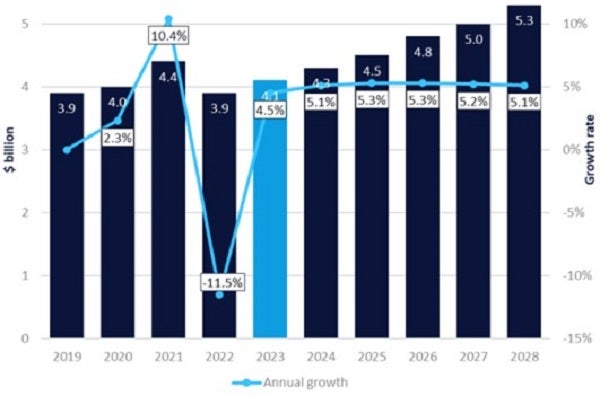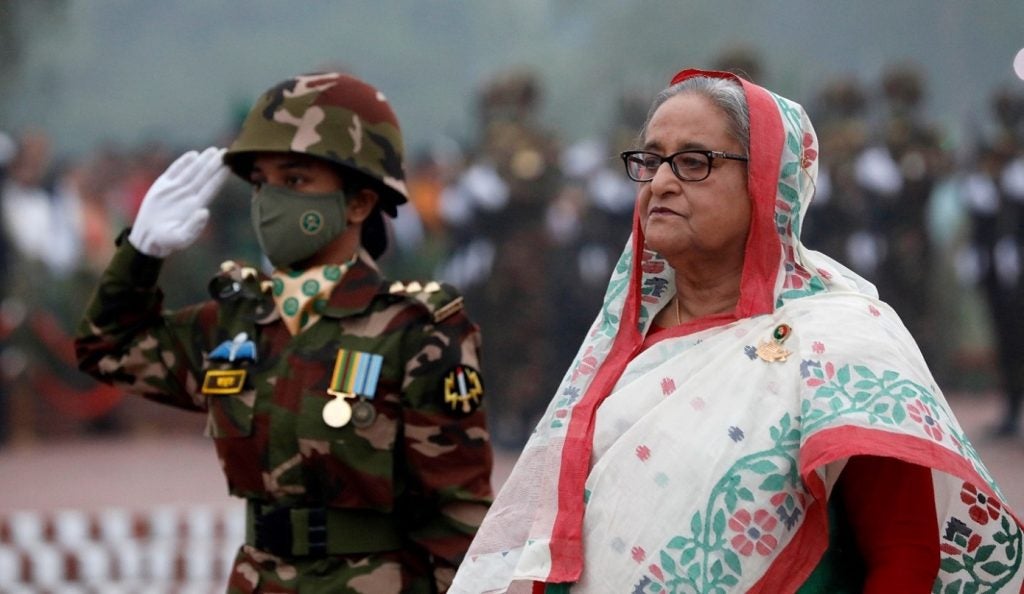Analysis from the leading intelligence consultancy GlobalData indicates that Bangladesh’s defence expenditure, as a percentage of its gross domestic product, is due to decrease marginally between 2024 and 2028.
While the average percentage during 2019 to 2023 was 1.8%, this is expected to stumble to 1.5% between 2024 and 2028, according to the company’s report: Bangladesh Defence Market 2023-2028.
However, this is not down to a a lack of funding since the defence budget will increase from $4.3bn in 2024 to $5.3bn in 2028, at a compound annual growth rate of 5.2%.
So what accounts for this slight shortfall over the next five years?
Although the South Asian nation is anticipated to provide robust funding, it is unlikely to be at the cost of economic development. Bangladesh is on a trajectory of economic recovery from the pandemic-induced downturn. Consequently, as the economy improves, a consistent flow of funding for defence is anticipated.

Bangladesh focuses on its naval build-up
The defence budget will grow to accommodate for modernisation across the armed forces, a goal set out in 2009 with the introduction of the country’s ‘Forces Goal 2030’, aimed at enhancing their capabilties.
Of the sectors, naval vessels and surface combatants are due to dominate the budget, while communication systems and electronic warfare (EW) systems offer particularly lucrative opportunities, as their estimated contract allocations (ECAs) are valued at $1.7bn, $654.7m, and $450.1m, respectively.
$1.4bn is expected to be spent on frigates, cumulatively, while investing $181.6m in light combat vessels over 2023–28.
Likewise, in 2019, a contract for indigenously built guided missile frigates was signed. Chittagong Dry Dock Limited has received a contract to build six new offshore patrol vessels for the Bangladeshi Navy.
The visit of the UK Royal Navy’s offshore patrol vessel, HMS Tamar, to the Bay of Bengal in January 2023 demonstrates the Bangladeshi Navy’s concern in its waters.
A series of discussions, combined training and cultural exchanges with the emphasis on underlining the UK’s commitment to Bangladesh were made.

“The Bangladeshi Navy have been very eager to exchange knowledge and understand the way we operate our Offshore Patrol Vessels,” Commander Elliot-Smith noted at the time.
“The visit has made clear the strategic importance of Bangladesh. Its Navy approaches interaction with the UK with a great sense of reverence, and they celebrate unanimously that their doctrine and policies are aligned to our own.”











